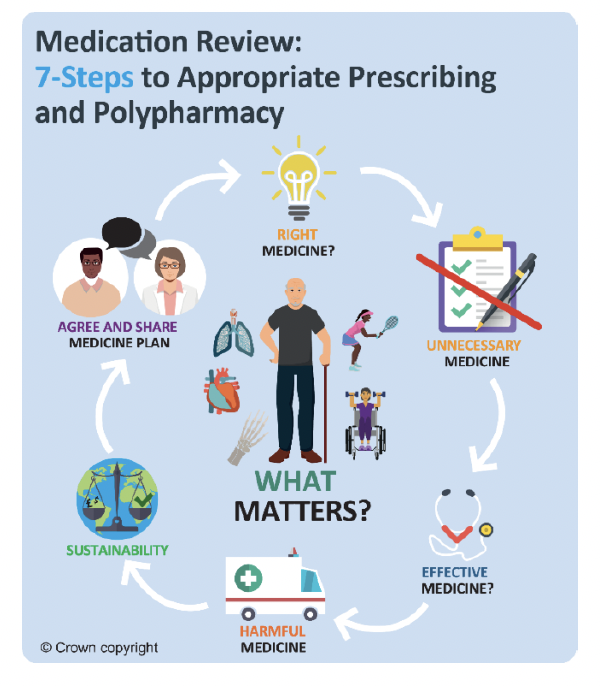Quality prescribing for antidepressants: guide for improvement 2024 to 2027
Antidepressant prescribing continues to increase in Scotland with one in five adults receiving one or more antidepressant prescriptions in a year. This guide aims to further improve the care of individuals receiving antidepressant medication and promote a holistic approach to person-centred care.
Executive Summary
Antidepressant prescribing continues to increase in Scotland with one in five adults receiving one or more antidepressant prescriptions in a year. In part, this is due to the range of antidepressants available to treat conditions such as depression, neuropathic pain and anxiety disorders, as well as positive changes in attitudes towards mental health conditions. The number of people receiving long-term antidepressant treatment has continued to increase with more than half of those prescribed antidepressants (six in ten adults) receiving long-term (≥2 years) treatment (Chart 1). [1] Some of this prescribing is appropriate in providing people with better courses of treatment and enabling better outcomes, however some long-term use of antidepressants may be inappropriate, where medication is no longer required or where non-pharmacological treatment options may be preferred. It is known that the frequency of proactive review of antidepressants when people are not experiencing crises reduces with time and this guide encourages clinicians to proactively review antidepressants and their continued need when individuals are stable and well. It encourages people prescribed antidepressants, or any other medicine, to initiate discussions with healthcare professionals regarding the appropriate continuation, reduction and discontinuation of their medication [see Recommendations].
An important principle in improving the care of people taking antidepressant medicines is to consider the role of shared decision-making and adopting a person-centred approach, considering the ongoing need for treatment. This includes discussions of the risks and benefits of treatment and consideration of non-pharmacological and evidence based psychological interventions, where appropriate and in line with current clinical guidelines [see Recommendations]. When reviewing those receiving antidepressants, particular groups of people have been identified that could be prioritised for proactive reviews – List 1 [see Targeting reviews]. This can be done using clinical systems such as the Scottish Therapeutics Utility available within GP practice.
The 7-Steps medicines review process provides a clear structure for undertaking proactive person-centred reviews, both at the initiation of medicine and in the review of existing treatments. This ensures that the individual’s concerns and preferences regarding continuation, reduction and/or cessation of antidepressants are considered and that treatment plans are centred around what matters to the individual.
The 7-Steps review process provides a framework for this, considering:
1. Aim: what matters to the person?
2. Need: identify essential medication.
3. Need: any unnecessary medication?
4. Effectiveness: are therapeutic objectives met?
5. Safety: any ADRs/ side effects or a risk of them?
6. Sustainability: cost-effective and environmentally sustainable
7. Person-centred: is the person willing and able to take drug therapy as intended?

This prescribing guide does not override existing local and national guidelines for the treatment and management of pain or common mental health disorders [see Background]. It has been developed by the collaborative efforts of a multidisciplinary team of clinicians, academics, experts by experience, patient groups and policy makers from across Scotland, Scottish Government and NHS Scotland, who are already delivering work around antidepressant prescribing to improve outcomes for the people of Scotland.
Contact
Email: EPandT@gov.scot
There is a problem
Thanks for your feedback